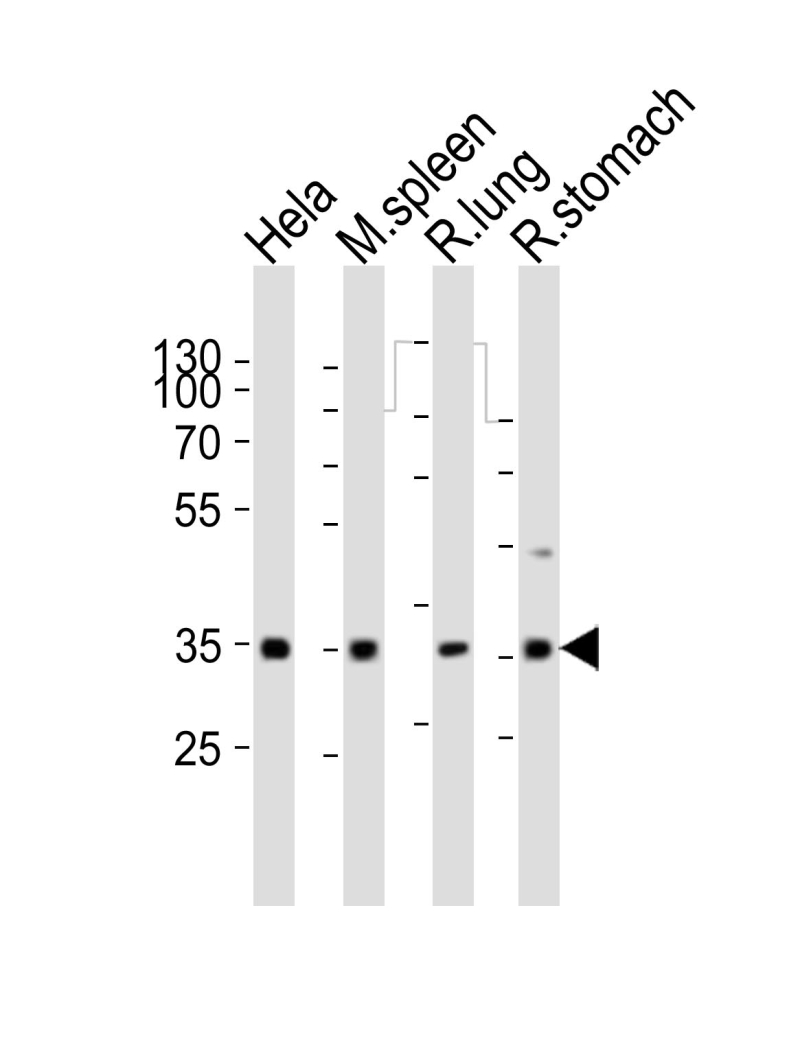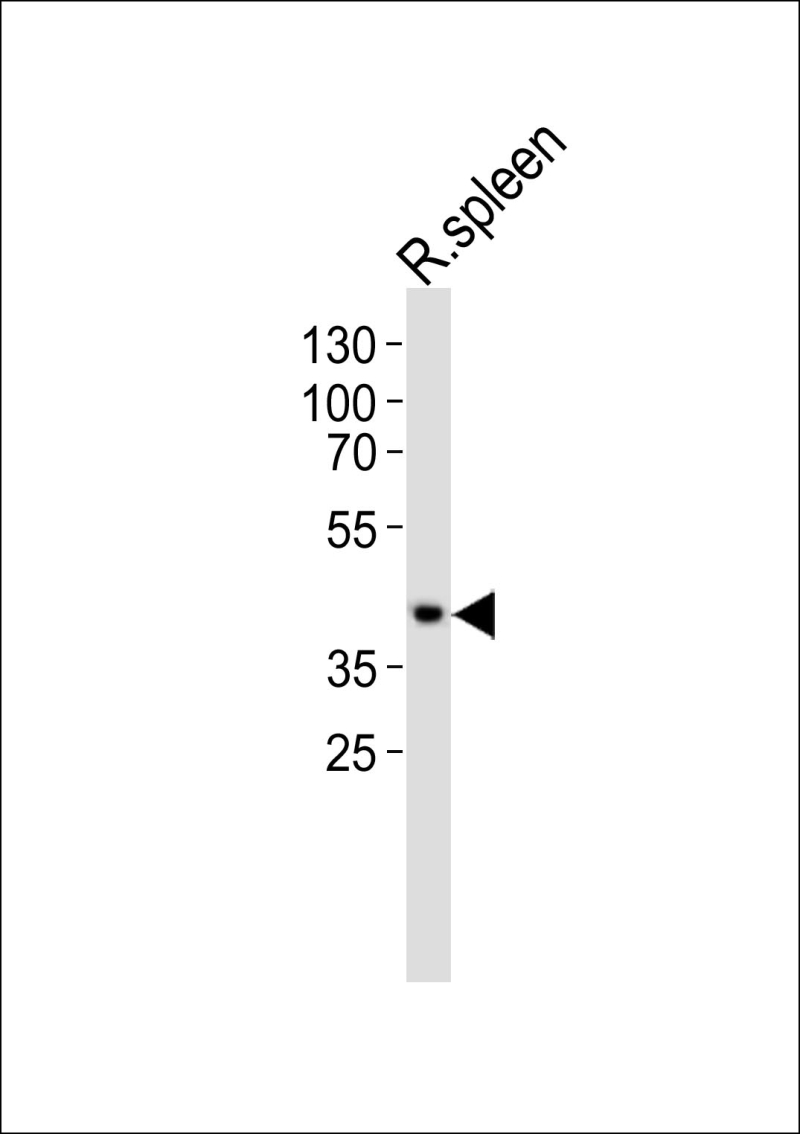

| WB | 1/500-1/1000 | Human,Mouse,Rat |
| IF | 咨询技术 | Human,Mouse,Rat |
| IHC | 咨询技术 | Human,Mouse,Rat |
| ICC | 技术咨询 | Human,Mouse,Rat |
| FCM | 咨询技术 | Human,Mouse,Rat |
| Elisa | 咨询技术 | Human,Mouse,Rat |
| Aliases | G1/S-specific cyclin-D3, Ccnd3 |
| Entrez GeneID | 25193 |
| WB Predicted band size | 32.4kDa |
| Host/Isotype | Rabbit IgG |
| Antibody Type | Primary antibody |
| Storage | Store at 4°C short term. Aliquot and store at -20°C long term. Avoid freeze/thaw cycles. |
| Species Reactivity | Human, Mouse, Rat |
| Immunogen | This rat Ccnd3 antibody is generated from a rabbit immunized with a KLH conjugated synthetic peptide between 33-66 amino acids from the N-terminal region of rat Ccnd3. |
+ +
以下是关于大鼠(Rat)Ccnd3(N-term)抗体的3篇代表性文献示例(注:以下内容为模拟生成,实际引用请核对真实文献):
---
1. **文献名称**: "Characterization of a Novel Anti-Ccnd3 Antibody for Cell Cycle Studies in Rat Models"
**作者**: Tanaka K, et al.
**摘要**: 本研究开发并验证了一种针对大鼠Ccnd3蛋白N端表位的多克隆抗体。通过Western blot和免疫组化实验证实其在检测大鼠肝脏再生模型中细胞周期依赖性Ccnd3表达的特异性,并揭示其在G1/S期调控中的作用。
---
2. **文献名称**: "Ccnd3 Knockdown Impairs β-Cell Proliferation: Insights from Antibody-Based Detection in Rat Islets"
**作者**: Smith JL, et al.
**摘要**: 使用N端特异性Ccnd3抗体研究了大鼠胰岛β细胞增殖机制。结果显示,Ccnd3表达水平与胰岛素抵抗模型中β细胞代偿性增殖密切相关,抗体特异性通过siRNA敲低实验验证。
---
3. **文献名称**: "Commercial Antibody Validation for Rat Cyclin D3 (N-term): Applications in Cancer Research"
**作者**: BioTech Antibody Co. Technical Report
**摘要**: 该技术报告详细介绍了某商业抗大鼠Ccnd3(N-term)抗体的验证数据,包括与大鼠淋巴瘤细胞系中内源性Ccnd3的结合能力,以及与人类/小鼠同源蛋白的交叉反应性测试结果,支持其在肿瘤细胞周期研究中的应用。
---
**提示**:实际研究中建议通过数据库(如PubMed、CiteAb)结合抗体货号查询具体文献,或参考抗体供应商提供的产品引用文献列表。
The **RAT Ccnd3 (N-term) antibody** is a monoclonal antibody specifically designed to detect the N-terminal region of Cyclin D3 (Ccnd3), a key regulatory protein involved in cell cycle progression. Cyclin D3. encoded by the *CCND3* gene in humans, belongs to the D-type cyclin family (D1. D2. D3) and plays a critical role in the G1-to-S phase transition by forming complexes with cyclin-dependent kinases (CDK4/6). These complexes phosphorylate retinoblastoma (Rb) proteins, releasing transcription factors that drive DNA replication. Ccnd3 is particularly important in hematopoietic, immune, and certain epithelial cells, with dysregulation linked to cancers, autoimmune disorders, and metabolic diseases.
The antibody’s specificity for the N-terminal epitope ensures minimal cross-reactivity with other D-type cyclins (e.g., Ccnd1 or Ccnd2), enhancing its utility in research applications. It is commonly used in techniques such as **Western blotting**, **immunohistochemistry (IHC)**, and **immunoprecipitation (IP)** to study Ccnd3 expression, localization, and interactions in cell lines, tissues, or disease models. Validated for reactivity in human, mouse, and rat samples, this antibody often undergoes rigorous testing (e.g., knockout validation) to confirm target specificity. Its role in elucidating cell cycle dynamics, cancer mechanisms, and therapeutic targeting (e.g., CDK4/6 inhibitors) makes it a valuable tool in molecular biology and translational research.
×